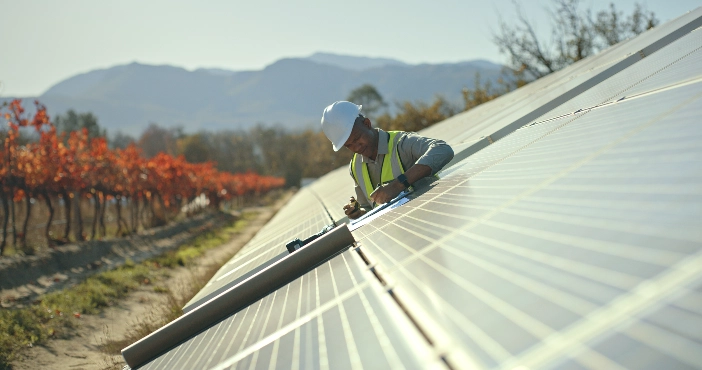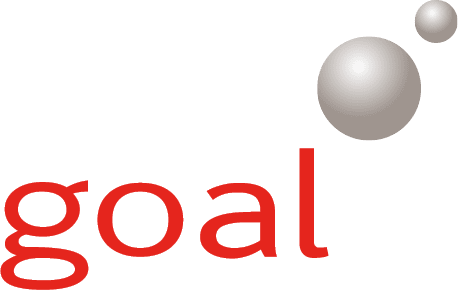What is greenwashing?
Greenwashing is the name given to disinformation given out by an organisation which is deliberately intended to present an environmentally responsible public image. Words like ‘organic’, ‘sustainable’ and ‘energy-efficient’ can be shoehorned into marketing information by less than scrupulous companies to capitalise on the demand for products and services which leave the least possible footprint on the environment. Disinformation on the implications of environmental regulations, emissions reduction, human rights abuse, the use of clean technology and stewardship responsibilities also comes under the greenwashing heading.
Consumers are increasingly prepared to shop around for commodities which use natural ingredients, avoid chemicals and conserve natural resources. Buyers in today’s market are deeply aware of the impact their choices make on the environment and feel a need to contribute to positive change in this sphere.
They are also demanding this transparency from the pension funds and asset management companies with whom they invest, with stakeholders becoming aware they have the authority to hold even the most powerful organisations to account and effect genuine change. Environmental claims by organisations must be backed up with demonstrable facts.

Greenwashing securities class actions
Koninklijke Philips N.V., (Royal Philips), Philips North America LLC and Philips RS North America LLC
A settlement was reached last year in a class action filed against Koninklijke Philips N.V., (Royal Philips), Philips North America LLC and Philips RS North America LLC concerning the sale of their Philips BiPAP, CPAP and mechanical ventilator devices. The lawsuit alleges that the defendants withheld the fact that they had inadequate manufacturing controls and procedures, and that as a result these products contained hazardous chemicals harmful to human health and would need to be recalled, potentially leading to legal action. The share price was therefore artificially inflated, and when the recall was announced, the share price fell by just under 4%.
These Philips devices contained polyester-based polyurethane (PE-PUR) sound abatement foam to reduce vibration and noise. The recall statement said that this foam could ‘degrade and become toxic’ by disintegrating into particles which the user could end up inhaling and could potentially cause a range of side effects including headaches, irritation, respiratory issues and even cancer. Lawyers for the class action alleged that Philips knew about the issue with this harmful chemical from 2008, but the recall didn’t take place until 2021.
Exxon Mobil Corporation
A securities class action was filed against Exxon Mobil Corporation by shareholders alleging that Exxon made materially false and misleading statements by overstating the value of its reserves of petroleum which it was commercially feasible to recover. A further report claimed that a valuation system had been used which ‘explicitly accounted for the prospect of policies regulating greenhouse gas emissions’ by including a proxy cost of carbon. The company later said that 20% of its proved hydrocarbon reserves would need to be written down, and the lawsuit alleges that Exxon’s stock prices were artificially inflated because documents revealed that Exxon’s internal accounting totals were different to those which were publicly shown.
BHP Billiton
A securities class action brought against BHP Billiton alleged that BHP made materially false and misleading statements to investors regarding safety, monitoring and risk management. BHP and a Brazilian company, Vale, are 50% shareholders in Samarco Mineração, an iron ore mining company in Brazil. In 2015, a tailings dam which was part of a mining complex failed, flooding nearby land with mining waste, killing 19 people, devastating villages and indigenous communities and contaminating hundreds of kilometres of waterways. It ranked as one of the country’s worst environmental disasters. A Brazilian class action was launched which ultimately won a settlement of R$20 billion, and the Renova foundation was set up by BHP and Vale to make reparations to those affected. However, a further class action is under way in the UK courts to hold BHP financially liable for damages, with 700,000 claimants, due to go to trial this year.
BooHoo
Fast fashion retailer BooHoo was thrust into the ESG limelight in 2022 when Environmental Audit Committee chairwoman Mary Creagh said its environmental policy claims and 20% sustainability target amounted to greenwashing. She stated ‘BooHoo . . . has to reduce the volume of clothes it makes and accurately price garments to reflect the environmental cost of fashion production.’ In 2023, the UK Competition and Markets Authority (CMA) subsequently opened an investigation into Boohoo to examine whether the statements and language used are too vague and may create an impression that its ‘Ready for the Future’ range is more environmentally sustainable than it really is. The CMA also stated that ‘the criteria used by some of these businesses to decide which products to include in these collections may be lower than customers might reasonably expect from their descriptions and overall presentation – for example, some products may contain as little as 20% recycled fabric’ and added that some items have been included ‘when they do not meet the criteria used by the business.’ Other fashion businesses are also being investigated and these companies could be liable for resulting securities class action lawsuits if these allegations are upheld.
Enviva
Enviva, the world’s largest producer of wood pellets for the biomass energy industry, has also hit the headlines in a securities class action lawsuit. Its wood products are a coal substitute and the company’s website states that ‘wood-based bioenergy is part of an all-in renewables strategy to reduce carbon emissions and limit dependence on fossil fuels.’ However, in 2022, a whistleblower from inside the organisation accused Enviva of falsifying green claims and using whole trees for its source of wood instead of branches, treetops and debris.
Later in the year activist investment firm Blue Orca Capital published a report about Enviva which stated they believed the company to be ‘flagrantly greenwashing,’ that it is a ‘product of deranged European climate subsidies which incentivize the destruction of American forests so that European power companies can check a bureaucratic box’ and that burning the type of wood Enviva uses in its products ‘emits more CO2 than any major energy source (including coal)’. The class action alleges that Enviva made false and misleading statements with regard to its business, operations and compliance policies, and that ‘Enviva had misrepresented the environmental sustainability of its wood pellet production and procurement.’
H&M
A current securities class action alleges that the clothing retailer misled customers about the sustainability of hundreds of its products due to the use of ‘environmental scorecards’ which contained falsified information that ‘did not comport with underlying data’. The lawsuit gives an example where a sustainability profile claimed that a dress was made with on average 20% less water, while it was actually made with 20% more water. In addition, the lawsuit states that products in H&M’s Conscious Collection, which was launched with a ‘vision for a sustainable fashion future’ was promoted as containing ‘at least 50% sustainable materials, such as organic cotton and recycled polyester’. However, products are included which are not sustainable, such as polyester, which the lawsuit contends ‘does not biodegrade, sheds toxic microfibers and is not recyclable.’
In addition to this, the lawsuit also alleges that H&M places bins in its stores which consumers are told are for recycling old clothes, but this is misleading as solutions for undertaking this recycling ‘either do not exist or are not commercially available at scale for the vast majority’ of H&M products at issue.
Virgin Scent
Virgin Scent recently agreed to pay out $3.08 million in a class action which claimed that its supposedly ‘natural’ and ‘chemical-free’ Artnaturals hand sanitisers contained unacceptably high levels of the carcinogenic chemical benzene.
Volkswagen
One of the largest and best-known greenwashing class actions was the global Volkswagen emissions scandal, nicknamed ‘dieselgate’, where software was deployed to circumvent testing for pollution.
The claimants argued that VW Group and dealerships misled consumers as nitrogen dioxide levels were lowered under lab conditions used at the time, and that at the height of the scandal it was claimed that when these vehicles were driven they were emitting up to 40 times the legal limit of nitrogen dioxide. Subsequently other automobile manufacturers, such as Renault, BMW and Hyundai, faced similar charges.
VW was found to be guilty of this while simultaneously receiving green car subsidies and tax exemptions in the US. VW made no admission of liability under the terms of the pre-trial settlement, but in the UK the settlement was £193 million paid out to over 91,000 people. In two further settlements, one with the United States and the State of California and one with the US Federal Trade Commission, VW and related entities agreed to spend up to $14.7 billion to settle allegations, $4.7 billion of which was to be spent to invest in green technology investment and pollution mitigation. In Germany, a settlement involves a pay-out of up to €830 million, in Australia AU$127 million, and in Canada CAN$2 million on top of CAN$2.4 billion already paid, which according to the prosecutor was at the time ‘26 times the highest fine ever (imposed) for a Canadian environmental offence.’
Green claims guides
In 2021, the UK published the Green Claims Code which was designed to enable UK businesses to check whether their environmental claims stood up under British law. It states that such claims must be substantiated, truthful and accurate, clear and unambiguous, lay out all the relevant information with no omissions, ensure comparisons are fair and meaningful, and consider the full life cycle. The latter point emphasises the fact that consumers are interested not just in the sustainability of the finished product, but in every stage of the supply chain and subsequent production; the sourcing and purchase of raw materials, treatment of indigenous peoples and local residents, manufacturing methods, reuse and recycling strategies and working conditions for employees.
The US Green Guides, like the ones in the UK, are not law and as such not directly enforceable, but the Federal Trade Commission can take steps against organisations if they make environmental claims which are inconsistent with the guidelines. In addition to guidance, the US Green Guides provides specific advice on issues including certification, carbon offsets, and recyclable, compostable and biodegradable claims.
The EU Green Claims Proposals only apply to voluntary claims made by companies during business-to-consumer transactions and don’t cover those for business-to-business. Among other things, they prohibit the use of general and unspecified green claims and the use of self-certification, and strengthen protections against misleading marketing concerning a product’s environmental impact.


Why greenwashing class actions are so important
According to a report by RepRisk, in the year September 2022-2023, one in every four climate-related ESG risk incidents was tied to greenwashing, and the banks and financial services sectors saw a 70% increase in the number of climate-related greenwashing incidents compared to the previous year. A further report by Zippia in 2023 lays out the alarming statistics that 68% of US executives admit their companies are guilty of greenwashing, 42% of corporate environmental claims made online are likely to be deceptive or false, and 88% of Gen Z say they don’t trust brands’ ESG claims.
Greenwashing securities class actions are expected to continue to rise, and no organisation can, or should, expect to get away with disseminating information which can’t be comprehensively backed up by reliable data.
Behind every corporate ESG policy is the necessity for complete honesty and transparency. Instant global communication enabling the rapid exchange of information and ideas has made filing securities class actions easier; on the environmental front, worldwide activism on green issues means that plaintiffs can dig deeply into assertions of sustainability and are well-placed to challenge them.
Why it’s essential for investors to participate
Investors are increasingly interested in the sustainability of their financial choices, and it’s vital that companies which hide behind an ethical smokescreen but operate on a less than transparent basis are held to account and made to face their responsibilities. The financial well-being of their shareholders, as well as the well-being of the planet, depend on it. In addition, from the commercial point of view, being accused of greenwashing, and the prospect of having to defend that position in court, can cause immense damage to a business’s brand and reputation. Investors have a fiduciary responsibility to ensure not only that the companies in which they invest meet the highest possible environmental standards, but also that they are entirely confident these standards are genuine.
How Goal Group can help
The Goal Group team is handling an ever-expanding portfolio of greenwashing securities class actions, demonstrating the worldwide repercussions which arise from spurious environmental claims.
We work with prominent financial institutions and asset management organisations from all over the world, protecting investments and providing expert management of securities class actions. Our specialist team undertakes global research, analysis, processing, relationship management and settlement distribution reconciliation, and has participated in many successful claim filings. Contact us to find out more about our services.

References to show cases mentioned are in the public domain:
Exxon
The greenwashing wave hits securities litigation | Reuters
Enviva
Wood Products Company Hit with ESG “Greenwashing” Securities Suit | The D&O Diary (dandodiary.com)
Philips
Philips Hit with Securities Class Action Over Stock Drop Linked to Bi-Level PAP, CPAP Device Recall
Virgin Scent
Artnaturals hand sanitizer benzene $3.1M class action settlement – Top Class Actions
Volkswagen
Volkswagen: The scandal explained – BBC News
BHP
BHP aims to settle over Brazil dam disaster (ft.com)
BooHoo
Boohoo boss: ‘We’re not a throwaway fashion brand’ – BBC News
H&M
‘Greenwashing’ Class Action Alleges H&M Sustainability Profiles Contain ‘Falsified Information’


